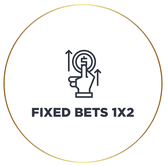In horse race betting, understanding expected value (EV) is essential for making informed wagering decisions.
EV is a quantitative tool that helps bettors evaluate potential returns in relation to the risks involved. By analyzing probabilities and comparing them to the odds set by bookmakers, bettors can identify value bets, which are bets that offer a higher probability of winning than the odds imply.
Calculating EV involves determining the probability of each outcome and multiplying it by the potential payout, then subtracting the cost of the bet. This process is crucial in betting as it aids in making calculated decisions rather than relying on chance.
By focusing on EV, bettors can develop a more strategic approach in the competitive environment of horse racing.
Key Takeaways
- Expected Value (EV) combines the probability of outcomes with their payoffs to inform betting decisions.
- The formula for EV is: (Probability of Winning x Payout) – (Probability of Losing x Stake).
- Positive EV indicates potential long-term profitability, while negative EV suggests a likely loss over time.
- Understanding EV helps avoid impulsive betting by focusing on analytical, data-driven decision-making.
- Identifying value bets involves comparing true probability with implied probability from bookmaker’s odds.
What Is Expected Value?
Expected value (EV) is a key concept in probability and statistics, particularly relevant in the context of horse race betting. It provides a method to calculate the average result of a bet if it were placed repeatedly. EV is determined by integrating the probabilities of different outcomes with their associated payoffs.
Understanding expected value is essential for making well-informed betting decisions due to several reasons:
-
Probability Assessment: EV incorporates the likelihood of various outcomes. Evaluating the probability of each horse winning, based on aspects such as historical performance and track conditions, is necessary.
-
Payout Analysis: EV also involves analyzing the potential payouts for each outcome. This requires knowledge of the odds and payouts to estimate the value of a bet accurately.
-
Decision-Making: By comparing the EVs of different bets, individuals can identify which bets might be more advantageous over time.
-
Risk Management: EV assists in managing risks by highlighting bets that may lead to expected losses (negative EV) or potential gains (positive EV) over time.
Calculating Expected Value
Calculating the expected value (EV) in the context of horse betting involves using a formula that combines probabilities and financial outcomes. The formula for expected value is as follows: EV = (Probability of Winning x Payout) – (Probability of Losing x Stake). This calculation provides an estimate of the potential profit or loss from a bet.
To understand each component:
-
Probability of Winning: This represents the likelihood of the chosen horse winning the race, expressed as a decimal. For instance, if a horse has a 20% chance of winning, the probability used in the formula would be 0.20.
-
Payout: This is the return on a successful bet. For example, if the payout is $5 for every $1 bet, this figure is used to calculate the total potential return.
-
Probability of Losing: This value is calculated by subtracting the probability of winning from 1. Therefore, if the probability of winning is 0.20, the probability of losing is 0.80.
-
Stake: This is the amount of money wagered on the horse.
By substituting these values into the formula, bettors can determine the expected value of their wager, which aids in assessing the financial viability of the bet.
This method relies on factual probability estimates and payout information to provide a rational analysis of potential betting outcomes.
Importance in Betting
Understanding the expected value in horse race betting involves more than simple calculations; it entails making informed choices that can significantly influence your betting strategy. By concentrating on expected value, bettors can pinpoint bets that offer optimal potential returns in relation to their risks. This method aids in avoiding common mistakes and improves one’s ability to make profitable decisions over time.
Key reasons why expected value is important in betting:
-
Informed Decision-Making: It enables bettors to evaluate the actual potential of a bet by considering both the probability of a win and the payout. This assists in selecting bets that provide value, rather than merely following popular choices.
-
Long-Term Profitability: A comprehension of expected value directs focus toward long-term profitability instead of short-term victories. Although a single bet may not always be successful, consistently selecting bets with positive expected value can lead to increased profitability over time.
-
Risk Management: Assessing expected value allows for improved risk management, ensuring that the betting strategy remains balanced. This prevents impulsive decisions driven by emotions or external influences.
Incorporating expected value into a betting strategy can result in a more analytical and potentially rewarding approach.
Probability and Odds
In horse race betting, understanding the concepts of probability and odds is essential for making informed decisions. These terms are fundamental to developing a rational betting strategy.
Probability
- Probability quantifies the likelihood of an event occurring.
- It’s expressed as a percentage or a fraction.
- It’s calculated by dividing the number of favorable outcomes by the total number of possible outcomes.
For instance, if a horse has a 1 in 5 chance of winning, the probability is 20% or 1/5.
Odds
- Odds represent the bookmaker’s assessment of an event’s likelihood.
- They’re typically expressed in three formats: fractional, decimal, and moneyline.
- Fractional odds (e.g., 4/1) indicate the potential profit relative to the stake.
- Decimal odds (e.g., 5.0) represent the total payout per unit bet.
- Moneyline odds (e.g., +400) are prevalent in the US and denote the potential profit on a $100 bet.
Converting odds to probability is useful for understanding the bookmaker’s perspective on the likelihood of an event. The conversion formula for decimal odds is:
[ ext{Probability} = rac{1}{ext{Decimal Odds}} imes 100 ]
Understanding these concepts allows for a more analytical approach to evaluating bets, potentially leading to more consistent betting outcomes.
Identifying Value Bets
Understanding probability and odds is essential for identifying value bets, which is a strategic approach to potentially increase returns in horse race betting. A value bet is identified when the odds provided by bookmakers indicate a lower chance of winning than the probability you have calculated. This difference can signal a potentially advantageous wager.
To identify value bets, follow these steps:
-
Calculate Implied Probability: Convert the bookmaker’s odds into an implied probability. For instance, if a horse is listed at odds of 4/1, the implied probability is 20% (calculated as 1 divided by (4+1)).
-
Estimate True Probability: Use available data and analysis to estimate the horse’s actual chance of winning. This should involve considering variables such as the horse’s recent performance, track conditions, and trainer history.
-
Compare Probabilities: If your assessed probability of the horse winning is higher than the implied probability given by the bookmaker, it indicates a value bet. For example, if you determine the horse has a 30% chance of winning, against the bookmaker’s implied 20%, this would be considered a value bet.
Common Mistakes to Avoid
Betting on horse races involves understanding and avoiding common mistakes that can impact your strategy. Here are some important considerations:
Overconfidence in Favorites
- It’s a misconception that favorites will always win. It’s essential to analyze the odds thoroughly and take into account additional factors, such as track conditions and jockey performance, to make informed decisions.
Ignoring Expected Value
- Calculating the expected value is crucial in betting. Relying solely on a horse’s popularity without considering if the odds are favorable can lead to financial losses.
Chasing Losses
- Increasing bets following a loss can be detrimental. Adhering to your budget and predetermined strategy is vital to avoid exacerbating losses.
Lack of Research
-
Comprehensive research into horses, trainers, and jockeys is necessary to improve your betting outcomes.
-
Analyzing past performances provides valuable insights that inform better decision-making.
Betting Too Often
-
More frequent bets don’t necessarily lead to increased winnings.
-
Prioritizing quality over quantity by placing bets where value has been identified is a more effective strategy.
Overlooking Bankroll Management
-
Establishing and adhering to a betting budget is essential.
-
Effective bankroll management ensures you can continue betting sustainably over time.
Enhancing Betting Strategy
Improving your betting strategy involves understanding common pitfalls and focusing on key components:
Conduct Comprehensive Research
- Evaluate historical performances, track conditions, and jockey statistics.
- Monitor changing odds as they may reflect shifts in public sentiment.
Comprehend Expected Value
- Assess potential gains in relation to the likelihood of winning.
- Utilize expected value calculations to ascertain if a bet is justified.
Diversify Your Bets
- Combine various bet types to mitigate risk.
- Include win, place, and show bets, along with exotic options like exactas and trifectas.
Establish a Budget
- Determine a bankroll limit prior to betting.
- Adhere to your budget to avoid impulsive betting decisions.
Document Your Bets
- Maintain a record of your bets, outcomes, and decision-making processes.
- Use this information to identify strengths and areas needing improvement.
Maintain Discipline
- Refrain from attempting to recover losses, as this can result in larger deficits.
- Prioritize long-term success over short-term outcomes.
Learn more about horse race betting trends here: https://fixed-bets1x2.com/2024/11/01/understanding-horse-race-betting-trends-and-strategies/
Frequently Asked Questions
How Does Understanding Expected Value Improve Long-Term Betting Success?
Understanding expected value helps you identify profitable bets and avoid consistent losses. By calculating potential returns versus risks, you make informed decisions, increasing your chances of long-term success instead of relying on luck or intuition.
Can Expected Value Be Applied to Other Types of Gambling Besides Horse Racing?
Yes, you can apply expected value to various types of gambling, including poker, sports betting, and casino games. It helps you make informed decisions by evaluating potential outcomes, increasing your chances of long-term success and profitability.
What Resources or Tools Can Help in Calculating Expected Value Accurately?
To calculate expected value accurately, you should use statistical software, spreadsheets, and online calculators. Study historical data, understand odds, and consult expert analysis. These resources help you make informed decisions and improve your betting strategy.
How Do Professional Bettors Use Expected Value to Gain an Edge?
You assess odds versus expected outcomes, identifying undervalued bets. By consistently wagering on positive expected value opportunities, you maximize long-term profits. Professional bettors thrive by exploiting these discrepancies, turning informed calculations into tangible gains.
Are There Any Legal Considerations When Using Expected Value in Betting?
When using expected value in betting, you must ensure you’re complying with gambling laws, including age restrictions and tax obligations. Always check local regulations to avoid illegal activities and make sure your betting practices are within legal boundaries.
Conclusion
In horse race betting, understanding expected value (EV) is crucial for making informed decisions. By calculating EV, you weigh the probability of winning against potential payoffs. This helps you spot value bets, where the bookmaker’s odds don’t align with true probabilities. Avoid common mistakes like overestimating your chances, and focus on disciplined strategies. Enhance your betting by regularly assessing EV, effectively managing your bankroll, and constantly refining your approach for long-term profitability.

